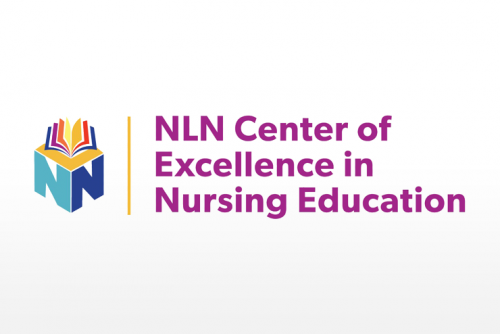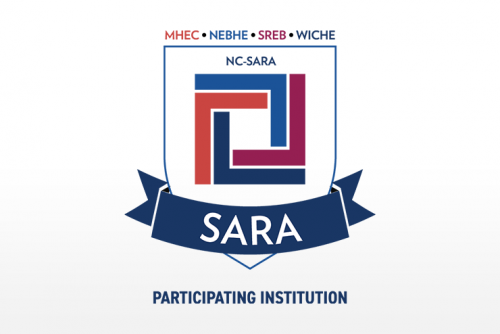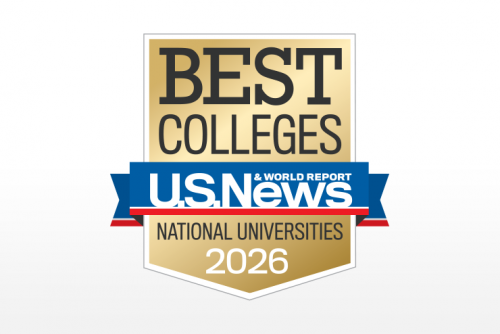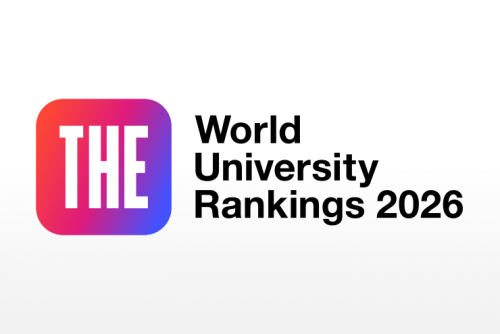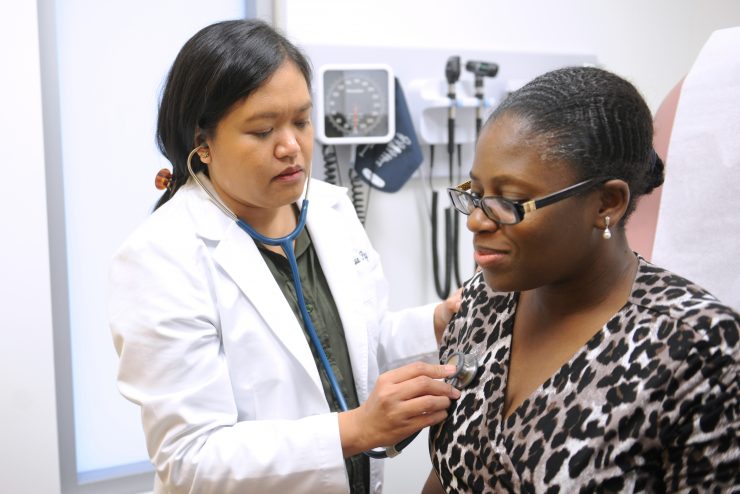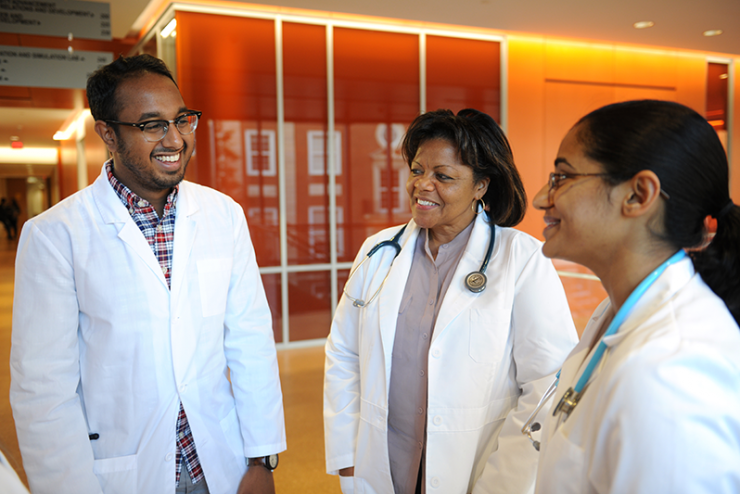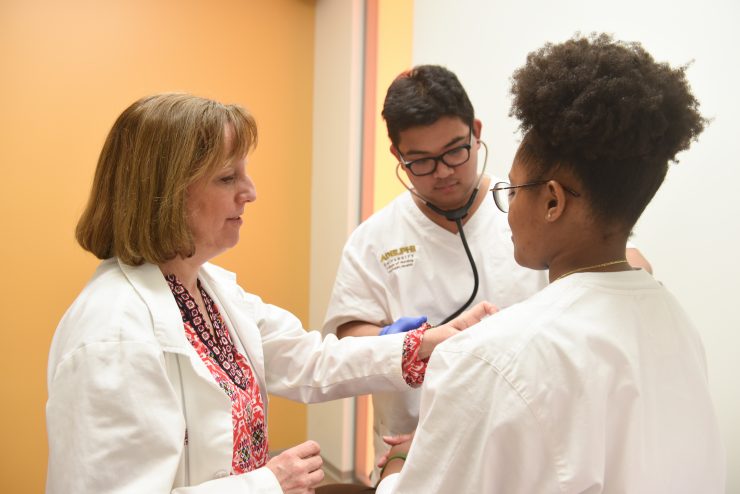Gratitude is shown for Adelphi faculty, students and alumni from the College of Nursing and Public Health who are battling the coronavirus pandemic.
Online Master’s Degree in Nursing Education
Play a pivotal role in nurse training and education, earning your master’s degree in nursing education online at Adelphi, one of New York’s top online nursing graduate programs, on a schedule that fits your needs.
Why Earn an MS (Master of Science in Nursing) in Nursing Education?
With a master’s degree in nursing education, you’ll gain the skills to instruct students, evaluate their performance, and design and implement innovative approaches to nursing education. While working in higher education is one potential career option, a Master of Science in Nursing Education will also prepare you for other careers, like educating nurses in clinics and hospitals, a clinical supervisor role in healthcare settings, or as a consultant for teaching institutions.
Why Earn a Nursing Education Master’s Degree at Adelphi University Online?
- Because this is a fully online MS program, RNs from anywhere in the United States are welcome to apply as out-of-state applicants!
- Learn from world-class faculty who teach using state-of-the-art educational technologies. And our nursing education classes are small, allowing personalized attention from our dedicated faculty.
- Learn the skills that will allow you and your students to adapt easily to the quickly changing demands of the healthcare industry, such as the global COVID-19 outbreak.
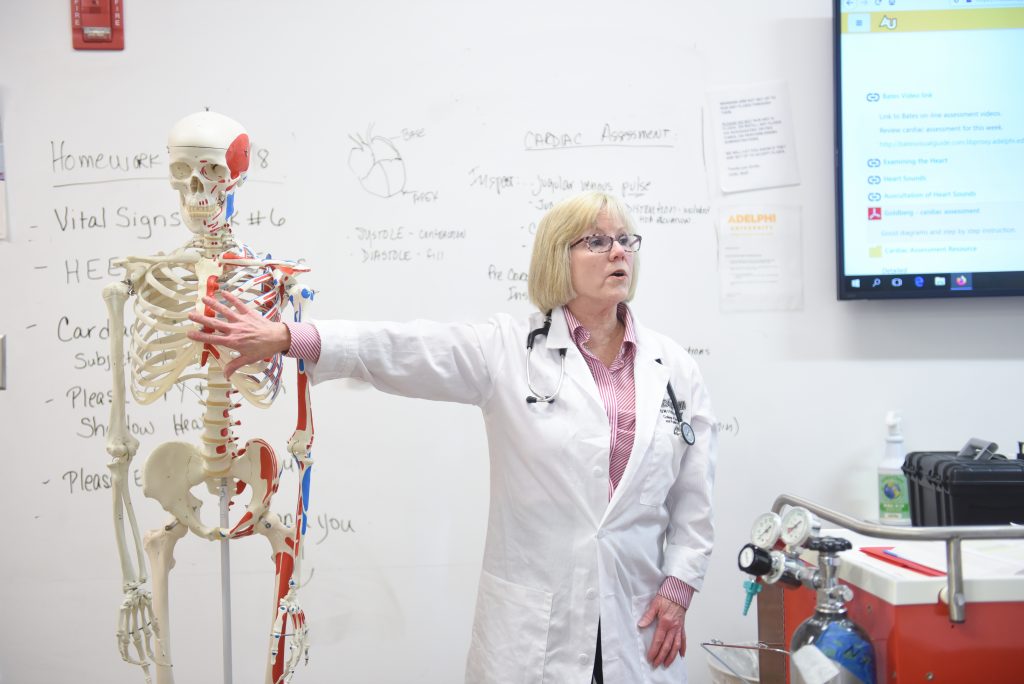
At Adelphi, you’ll prepare to impact the next generation of nurses.
Pursuing a Master’s in Nursing Education degree at Adelphi University has been life changing. Learning from exemplary and expert teachers in a supportive learning environment gives me a great opportunity to grow professionally as I develop my role as a nurse educator. I am excited and look forward to helping impact the future of nursing.
Post-Master’s Degree in Nursing Education Options
Nursing education students have two options to further their nursing education:
PhD in Nursing
Become a nurse-scholar and contribute to the development of the field, advancing healthcare through teaching, research and leadership.
Adult Gerontology Primary Care Nurse Practitioner Certificate
Available to strengthen the administrative or clinical capability of master’s degree-prepared nurses who are planning on or are already involved in a role expansion or change.
Graduate Certificates in Nursing Education
These certificates are designed for students who already hold a master’s degree in nursing and have clinical experience but who now wish to become more involved in education or pursue an educational role.
Exceptional Hands-On Learning
At Adelphi, we believe hands-on experience is key to setting our students up for future career success. This is why we ensure our nursing education master’s degree students have firsthand medical experience through internships and out-of-the-classroom opportunities in the New York area. For fully online MSN students, we will also facilitate internships and clinical experiences at healthcare institutions in your geographic region. Below are some of the locations at which you will have the opportunity to enhance your nurse educator skills through internships:
State-of-the-Art Technology
On our main Garden City campus, we offer our nursing education students uniquely tailored clinical experiences by simulating the hospital setting. We do this through the latest tools and technology available in our state-of-the-art simulation lab. The lab provides our students with the highest-quality simulation technology in a safe learning environment so they receive the education, practice and exposure they need when applying for their first job.
Our state-of-the-art simulation lab provides our students with the highest-quality simulation technology in a safe learning environment so they receive the education, practice and exposure they need when applying for their first job.
Students have access to two simulation manikins:
- Victoria, our birthing manikin, simulates a live birth and is one of only two such manikins in the tristate area.
- Hal, our new state-of-the-art pediatric manikin, is the most advanced pediatric patient simulator in the United States—capable of simulating lifelike emotions through dynamic facial expressions, movement and speech.
Inside CESiL
Located in the Nexus Building, our 22-bed sim lab with ER, delivery and pediatric rooms allow students to train in real-world medical scenarios with no risk to patients. Launch Gallery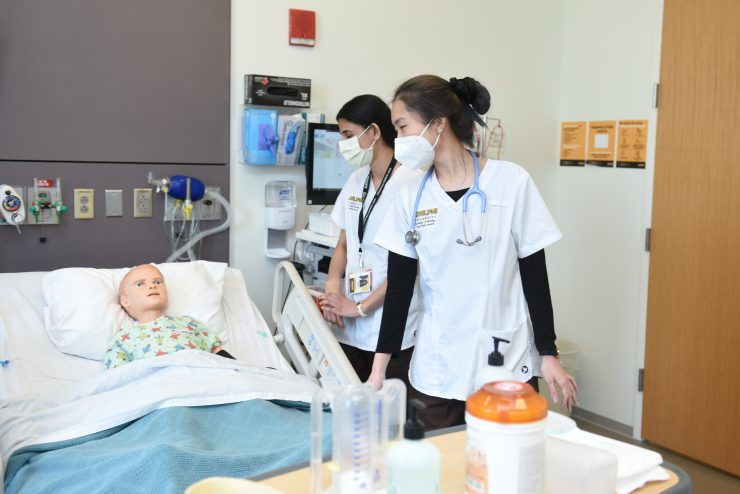
Inside CESiL
Located in the Nexus Building, our 22-bed sim lab with ER, delivery and pediatric rooms allow students to train in real-world medical scenarios with no risk to patients. 7 Photos-
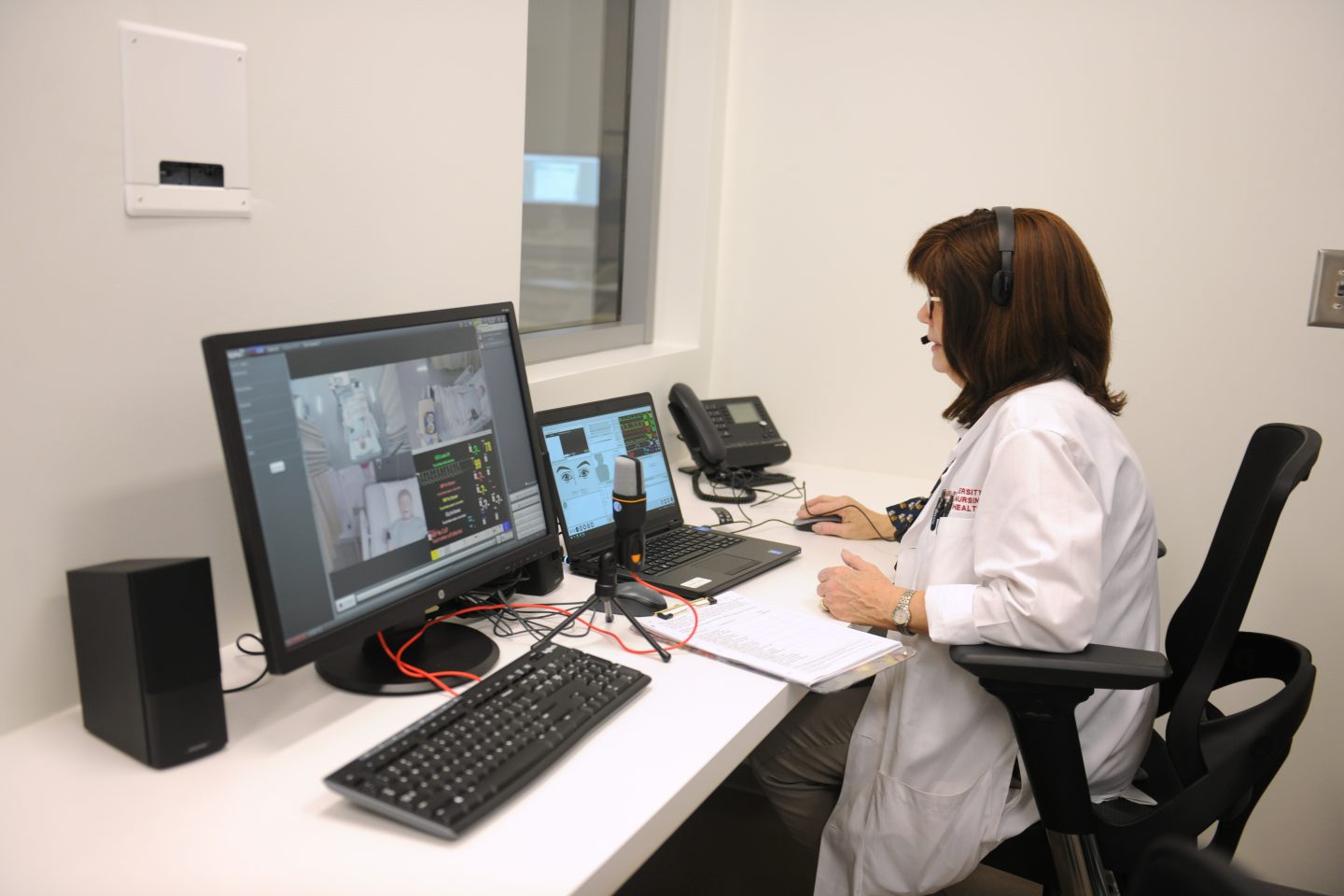
During a high-fidelity simulation, a faculty member provides remote support to nursing students to guide them through a variety of clinical scenarios.
-
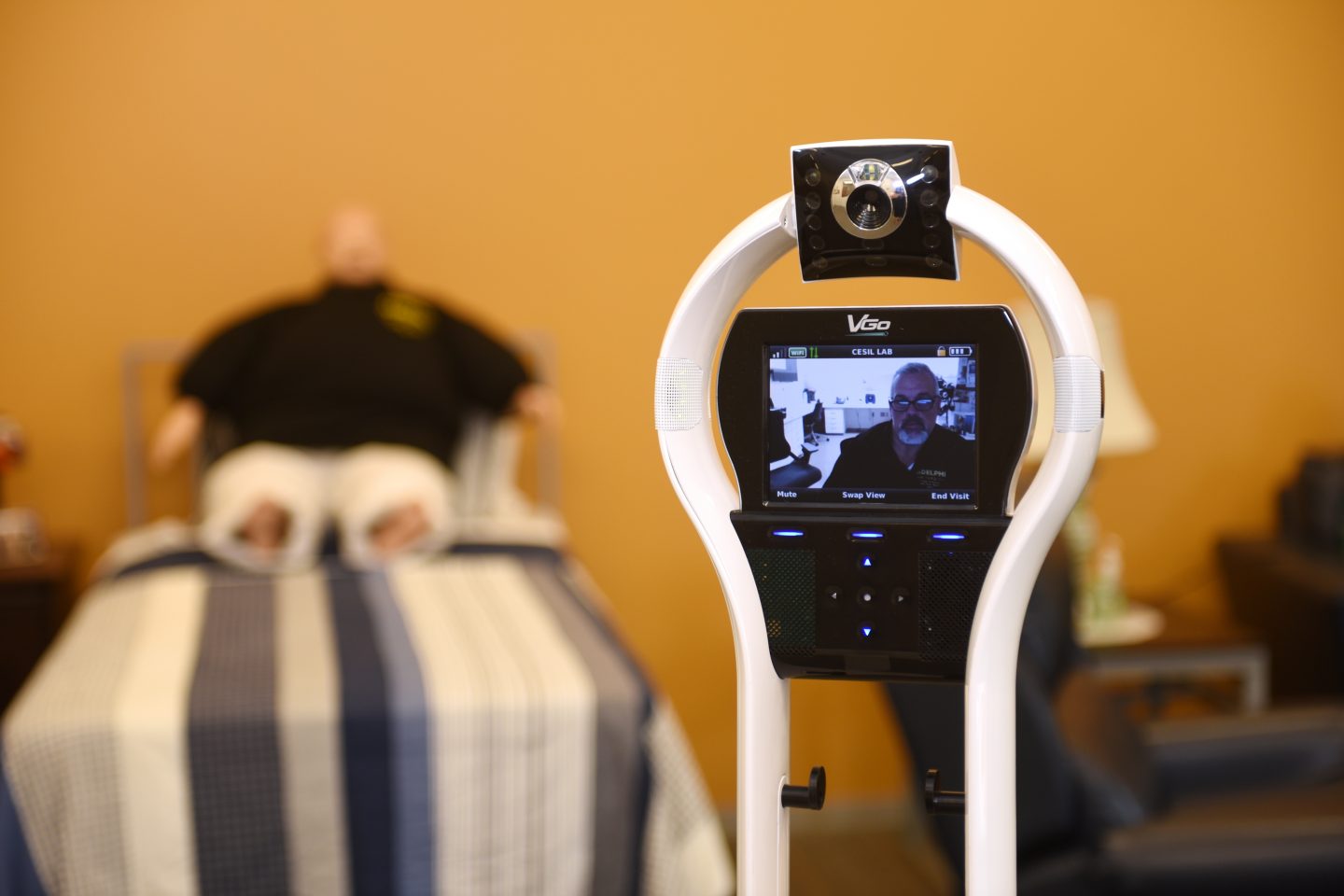
Telepresence robots like this one are used for remote monitoring in CESiL’s home-care suite as well as in the growing home healthcare field. They enhance both nursing and healthcare informatics students’ educational experience.
-
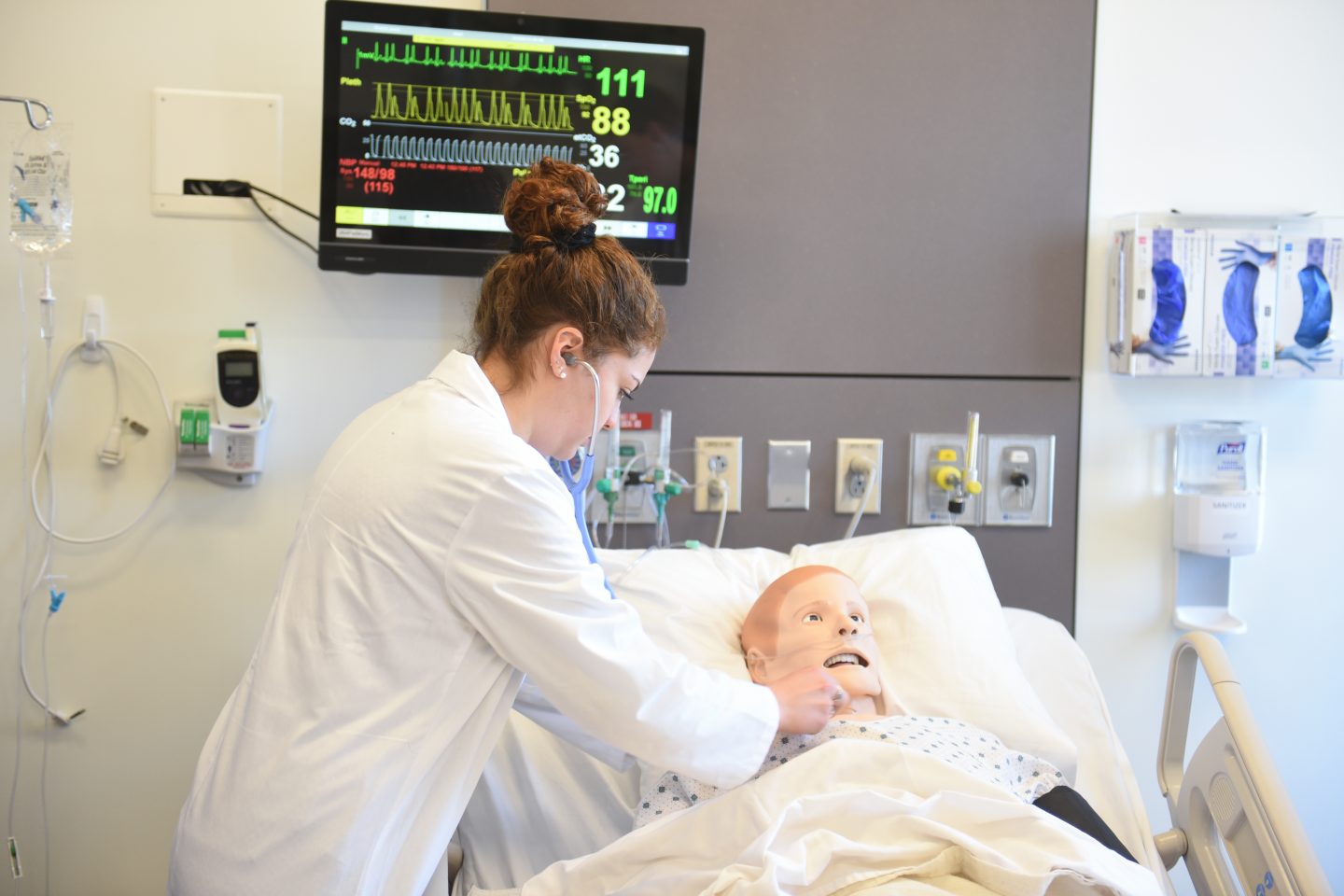
For College of Nursing and Public Health nursing students, learning in the various CESiL simulated settings and situations is like training in a real hospital. That experience was especially invaluable in the midst of the pandemic, nursing students said.
-
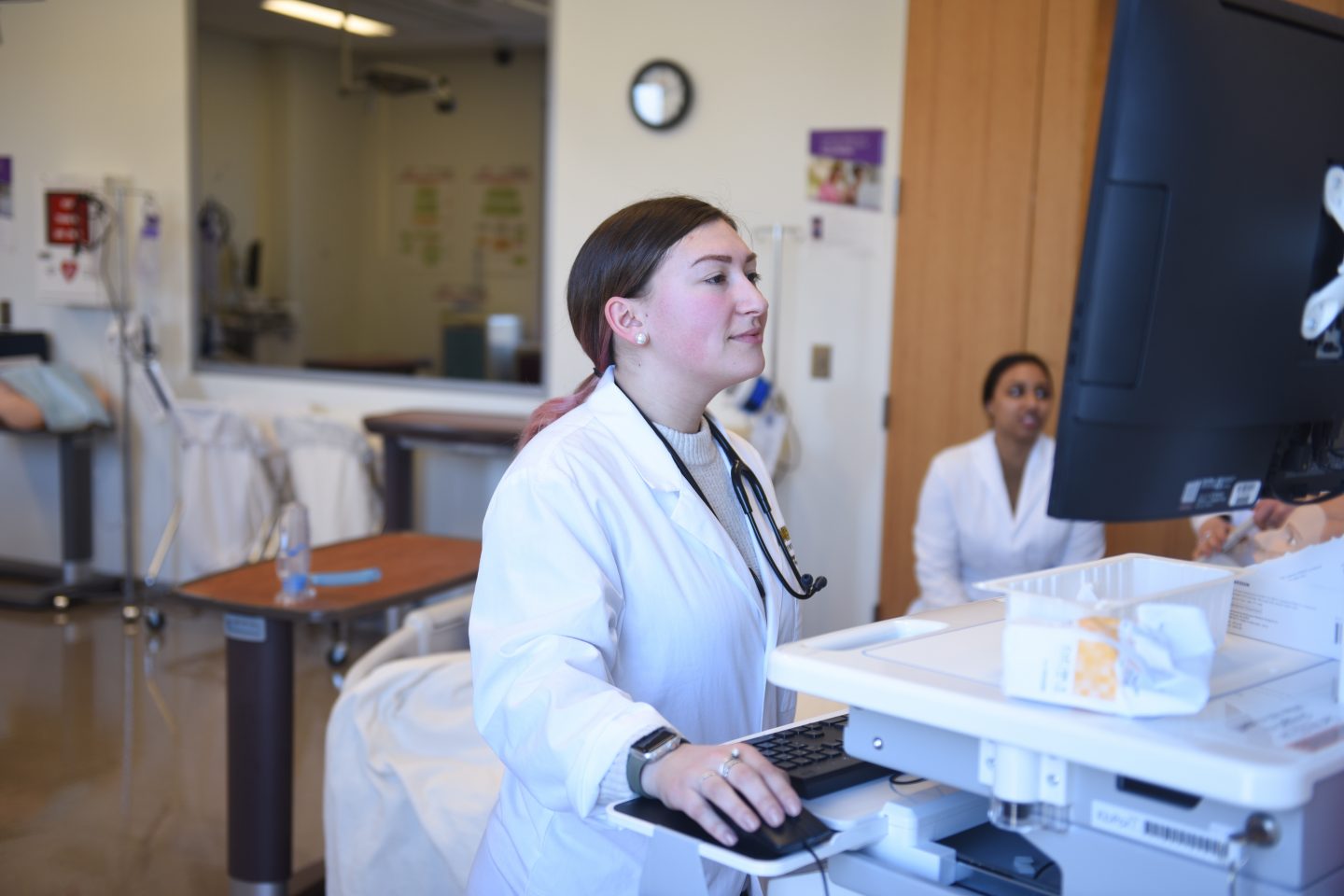
By practicing their clinical skills in a realistic hospital setting and learning how to safely and accurately administer medications, nursing students become well prepared for their first RN jobs.
-
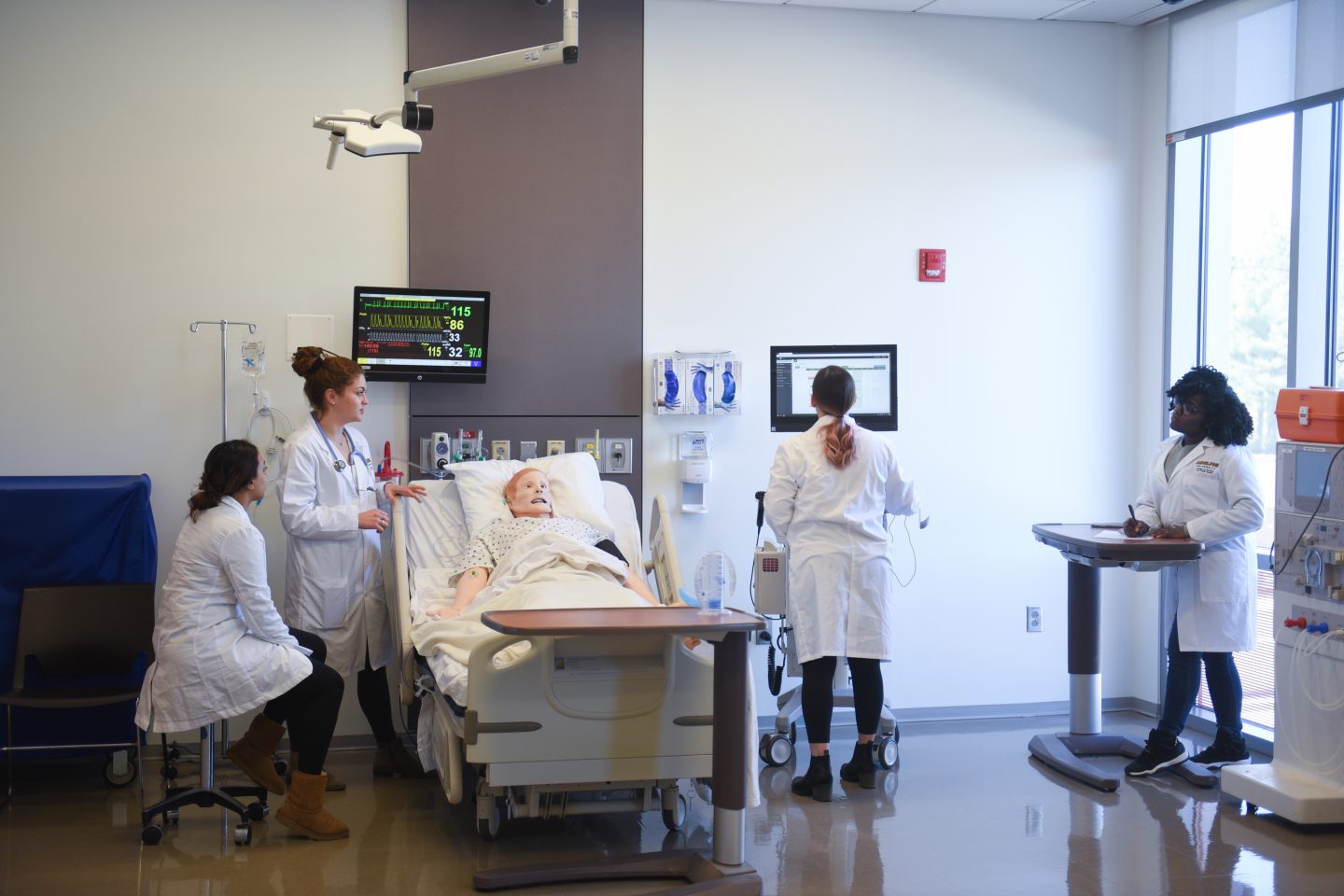
Here, a cohort of students addresses an emergency code situation with a high-fidelity manikin and gains experience in electronic medical record processes. Various manikins, supportive supplies and state-of-the-art equipment enable faculty and students to translate theory into practice.
-
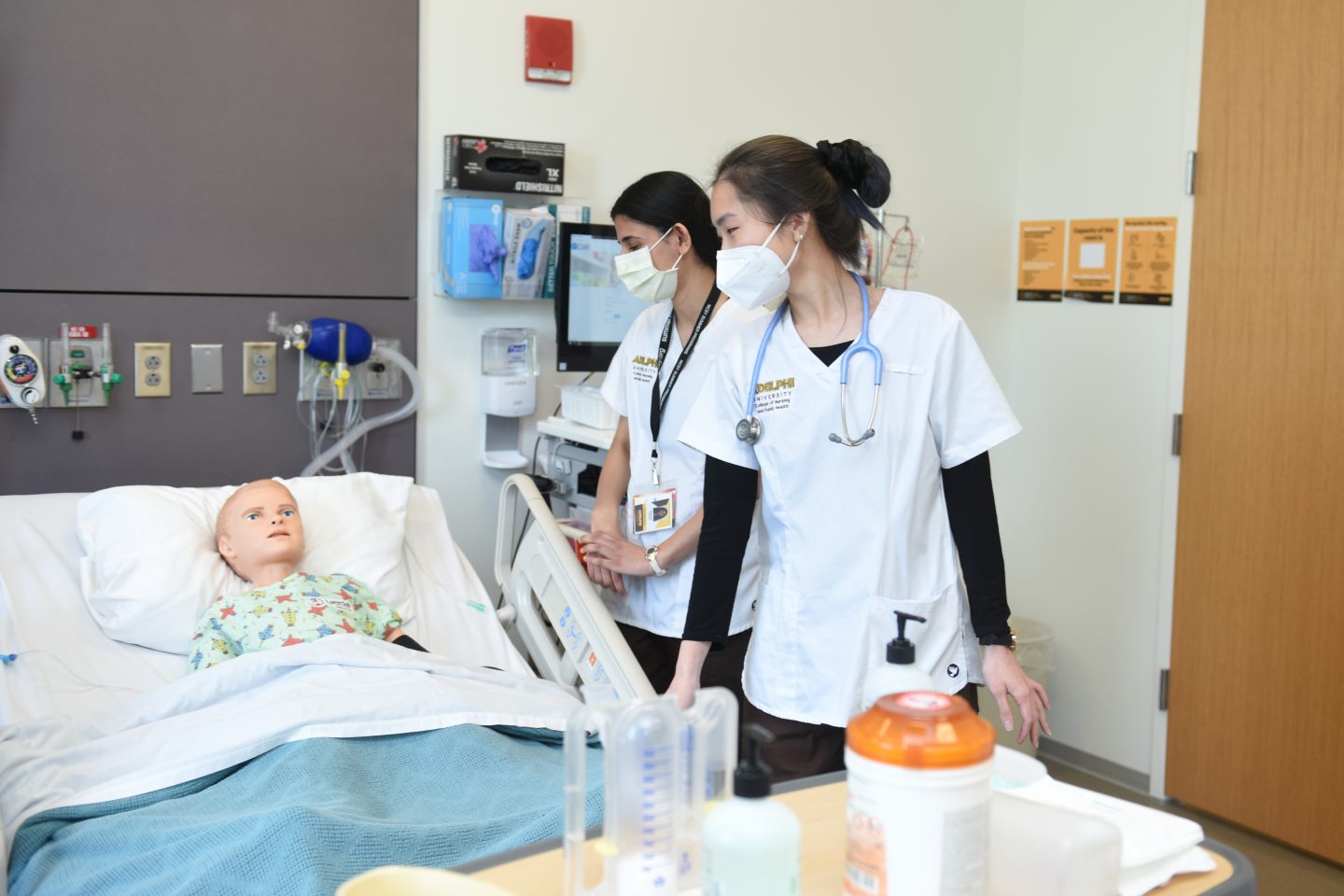
Faculty use this pediatric manikin to train their students in everything from routine to emergency experiences. When used with an obesity suit, the manikin enables nurses to learn about the treatment of child obesity, a growing problem in the 6-to-9 age bracket.
-
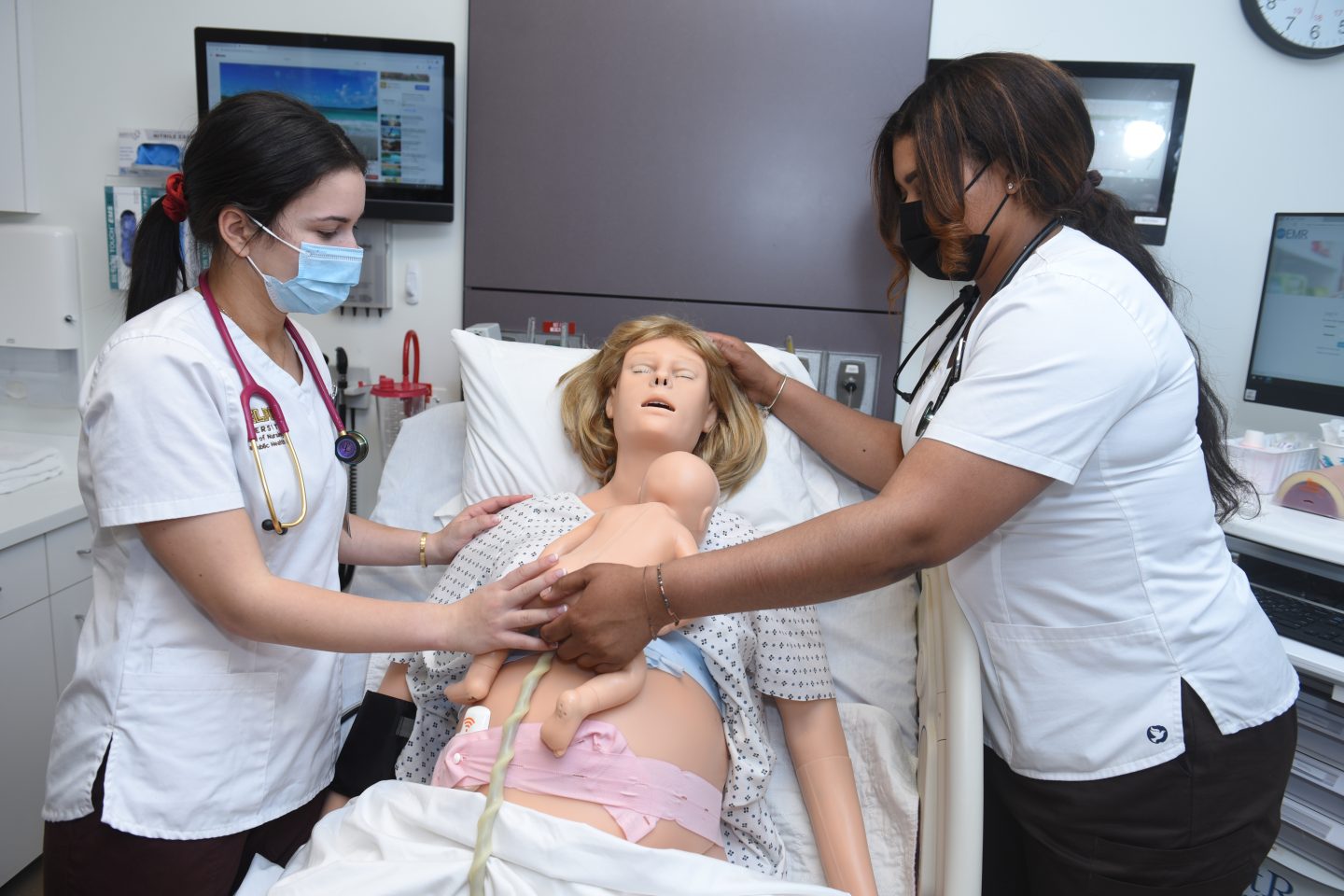
Victoria, a high-fidelity maternal simulator manikin, arrived at CESiL with two baby manikins in March 2019—able to simulate a complete range of situations that nurses may face in the delivery room, from typical neonatal care to obstetric emergencies.
Inside the Clinical Education and Simulation Lab
Program Info
Application Requirements
Applicants for the nursing education master’s degree program must have a minimum 3.0 GPA and a B or above in all science and nursing classes, and should submit the following:
- Graduate application and $60 fee
- Résumé
- 500-word personal essay on your reasons for applying to the program
- All previous college transcripts, including final transcript documenting a bachelor’s degree in nursing from an accredited four-year institution
- Current RN license
- Course-by-course evaluation: All graduate applicants with undergraduate-level work completed outside of the United States will be required to send a course-by-course evaluation of their academic work prepared by a NACES member organization. Adelphi recommends you use The Evaluation Company (TEC) or IEE (discount provided for Adelphi applicants), ECE, or WES, but any NACES member evaluation would be acceptable.
Frequently Asked Questions About the Nursing Education Master’s Degree
The Master of Science in Nursing Education prepares students as nurse educators competent to function in a variety of academic and clinical settings. You will develop knowledge and skills related to instructional design; assessment and measurement strategies; and curriculum development, implementation and evaluation. After completing the program, you will be able to assist in meeting the educational needs of the nursing profession and healthcare consumers; integrate scholarly processes in nursing education practice; develop, implement and evaluate innovative approaches to nursing education; and advance the professional role of the nurse educator.
Yes, our fully online Master of Science in Nursing Education is designed to accommodate working registered professional nurses. Learn at your convenience and advance your career while balancing work and family.
Entry into the program is in the fall and includes seven consecutive semesters, including two summer semesters. This equates to the completion of the Master of Science in Nursing Education in a little more than two years. For example, if you begin the program of study in Fall 2025, graduation is expected in Fall 2027.
Awards & Recognition
